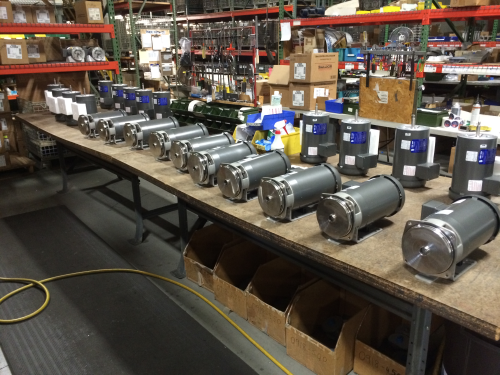
The digital edition of the magazine is distributed free of charge to readers who meet our qualifying criteria. You can apply to receive your free copy by completing this short registration form.
Sales lead management between manufacturers and their outside distribution network is not always easy. Justin Johnson, CEO & Co-Founder of LeadMethod explains why the software program LeadMethod accommodates this complex sales relationship, allowing manufacturers to automate their lead capture and distribution process while offering their distributors a tool to organize their leads and provide feedback on their sales opportunities.
For most manufacturers that sell through a channel sales network, visibility ends where distributor involvement begins. Imagine this scenario: A potential customer calls your factory or sends a quote request through your website. Your marketing department sends an email to your local distributor with the lead details. What happens next? Is the lead contacted by the distributor? And how fast does the distributor sales person reach out to that potential customer?
Optimizing sales the channel
Most manufacturers don't know the answers or don’t have a clear view of lead patterns. But if they want to optimize their sales channel and maximize revenue, they should. Price Pump, a manufacturer of centrifugal and air operated diaphragm (AOD) pumps, is all too familiar with this story.
“We work hard to drive high value leads so that our distributors can sell more products,” says Jestin Plowright, sales and marketing manager for Price Pump Company, a leading manufacturer of industrial pumps. “But it’s a challenge for us to know whether or not the sales reps are following up on the leads and what our sales forecasts looks like across our distribution channel. Right now, the only feedback we get from our distributors is the occasional email, and most of the time we have to solicit that information.”
Plowright's concern is warranted. A recent study from the Harvard Business Review shows that 47% of leads are contacted more than 24 hours after the initial customer inquiry, greatly diminishing the probability of making a sale. Meanwhile, many customers are never contacted at all. Gartner Research reports that 43% of sales go to the company that follows up first on the lead. These studies highlight the danger of not knowing what is happening with your leads. But without visibility to their outside sales channel, it’s nearly impossible for manufacturers to identify and address those red flags.
Communication breakdown
When it comes to tracking leads manually, manufacturers have no way of knowing if and how their distributors have addressed them. Additionally, they’re unable to connect leads to specific marketing or advertising sources to determine the ROI for their marketing dollars spent. Forecasting sales based on the leads in the channel pipeline can also be a challenge, as is organizing leads in a central location that is easy for outside sales reps to use. These are all issue that directly impact the manufacturers' sales and revenue.
And manufacturers aren't the only ones affected. “Communication between manufacturers and distributors has always been a challenge," says Ron Somerville, an equipment distributor covering the Southeast US for Master Pumps., "As distributors, we don’t have an effective tool to provide manufacturers with consistent information about the leads they send us and our sales pipeline.”
CRM systems
CRM (customer relationship management) systems are well-known for managing leads and customer data within an internal sales organization. However, for companies that sell through outside distribution channels, CRM doesn’t provide the functionality needed to manage leads and facilitate communication across their complex sales channel.
“Several of the manufacturers that we represent have asked us to use their CRM programs, but they’ve never worked” says Somerville. “Distributors don’t want to learn how to use 20 different systems and keep track of 20 different login details for something we rarely use. It’s a huge hassle for us, so we just don’t use it.”
Manufacturers need to be able to clearly visualize and understand what is happening to the leads they send to distributors. Meanwhile, distributors need an easy way to communicate with manufacturers that integrates seamlessly with their normal business process. Fortunately, new technology can help bridge this gap by easing the flow of communication and information for both sides.
New software
It’s clear that for a lead management system to work for manufacturers and their outside distribution network, it has to be simple, easy to use, and fit their existing business processes. Designing a software product to accommodate this complex sales relationship is not easy.
Oregon-based lead management software company LeadMethod has developed one such product. The company’s web-based platform allows manufacturers to automate their lead capture and distribution process while offering their distributors a tool to organize their leads and provide feedback on sales opportunities. The software also provides manufacturers with analytics to understand what is happening with their leads, sales opportunities, sales forecasts and distributor performance.
“The LeadMethod team has built a platform for us to better understand our sales opportunities, and improve the communication and feedback with our distributors," says Jestin Plowright, sales & marketing manager for Price Pump Company. “The system is easy to use and gives us the answers that we need to better understand our channel sales network and opportunities.”
According to Gartner Research, automating the lead management process enables companies to increase revenue by 10% or more in only six months. Justin Johnson, CEO of LeadMethod, says that gaining control of those languishing leads represents a huge opportunity for manufacturers. “Automating the lead management process, improving distributor feedback and communication, and making the most out of every sales opportunity can make a big difference in a manufacturer’s revenue growth."
The digital edition of the magazine is distributed free of charge to readers who meet our qualifying criteria. You can apply to receive your free copy by completing this short registration form.




